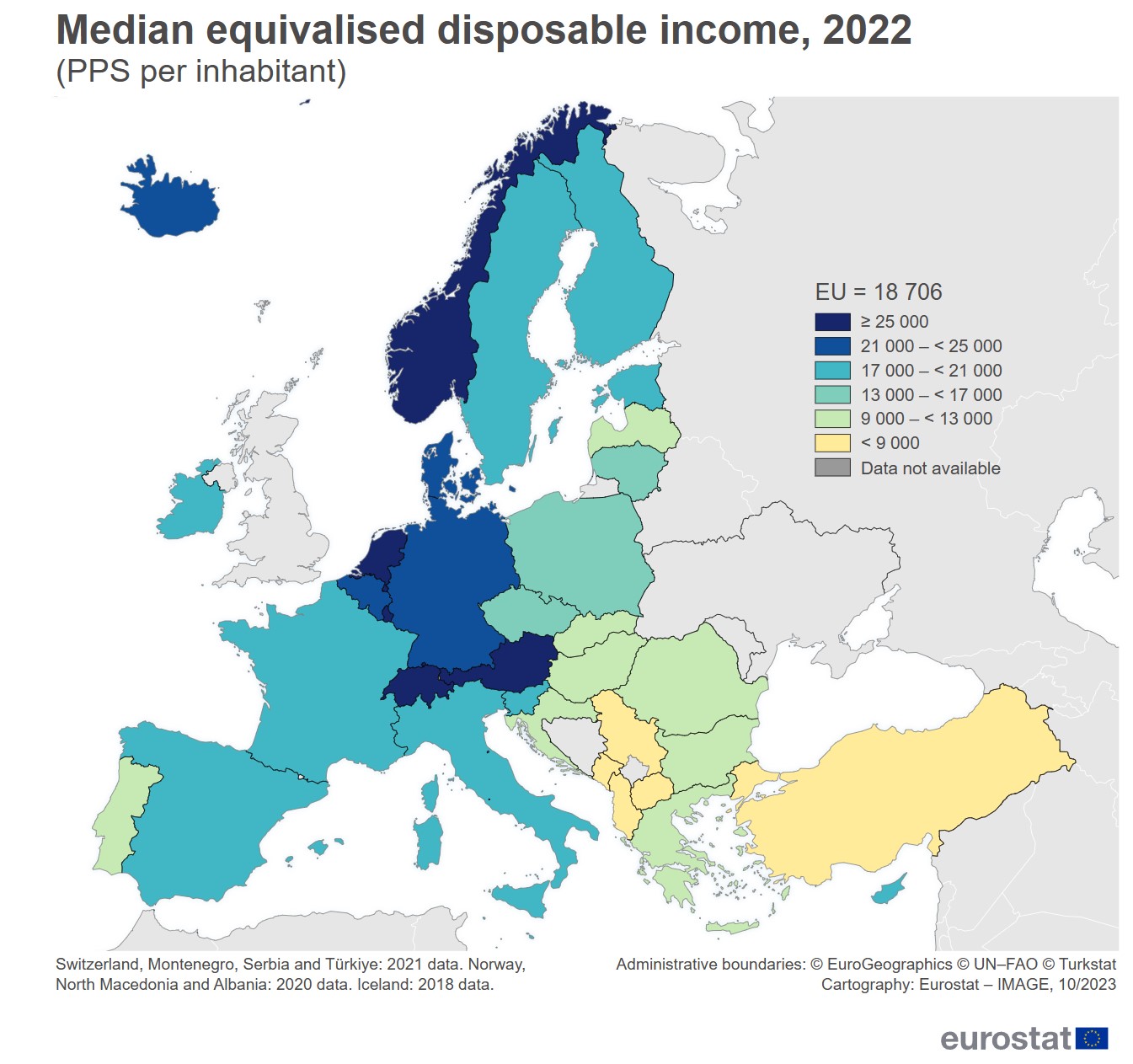Belgians have the sixth highest median incomes in the EU, according to a recent report by Eurostat, the EU's official statistics office.
The study noted that the median disposable income per inhabitant in Belgium in 2022 was €27,314, well above the EU average of €19,083 and comfortably ahead of neighbours Germany (€25,000) and France (€23,053). (Median disposable income represents the salary, after taxes, where half the population earns more and the remaining half earns less.)
Luxembourg recorded the highest salaries (€45,310) in the bloc, followed by Denmark (€33,260) and the Netherlands (€29,537). By contrast, Bulgaria (€5,378) posted the lowest incomes, with Romania (€5,512) and Hungary (€6,975) registering the second and third-lowest respectively.
 The report also found that in purchasing power standards (PPS) – a widely used economic measure which accounts for price differences in different countries – Belgium registered the fourth highest median income in the EU at 24,142 PPS. It only fell behind Luxembourg (33,214 PPS), the Netherlands (25,437 PPS) and Austria (25,119 PPS). (One PPS buys the same quantity and goods and services in each country.)
The report also found that in purchasing power standards (PPS) – a widely used economic measure which accounts for price differences in different countries – Belgium registered the fourth highest median income in the EU at 24,142 PPS. It only fell behind Luxembourg (33,214 PPS), the Netherlands (25,437 PPS) and Austria (25,119 PPS). (One PPS buys the same quantity and goods and services in each country.)
Belgians have historically had one of the highest incomes in the EU. In 1995, the first year that Eurostat began collecting data, the country posted the fourth highest median salaries in the bloc, at €13,405.
Eurostat's report follows another study conducted earlier this year by Credit Suisse and UBS, which found that Belgians also have the highest median wealth in the world, at $249,040 (€228,594) per adult.
High salaries – and high anxiety
Despite their relatively high earnings, numerous Belgians have experienced acute financial pain since the onset of the Covid-19 pandemic in 2020 and subsequent energy crisis triggered by Russia's invasion of Ukraine in February 2022.
Earlier this year, consumer rights group Test Achats found that 27% of Belgians are unable to save any money at all at the end of each month, up from 25% in April last year. The study also found that 57% view their financial situation as "significantly worse" than in 2021 and that one in eight had recently turned to friends and family to make ends meet.
Related News
Other recent studies have painted a relatively bleak picture of Belgium's future economic prospects. In September, the Central Economic Council (CEC) predicted that wages in Belgium will rise by less than previously estimated next year compared to neighbouring countries.
In particular, the CEC forecast that salaries in Belgium will increase by 1.7% in comparison to its neighbours by the end of 2024 (relative to a reference year of 1996). Last year, the CEC forecast that wages would grow by almost three times as much (4.6%) over this period.
The CEC report preceded another analysis published just last month by the International Monetary Fund, which forecast that inflation – which erodes citizens' real incomes – will rise in Belgium from 2.5% this year to above 4% in 2024.

